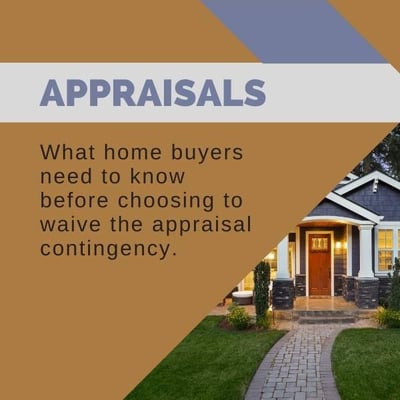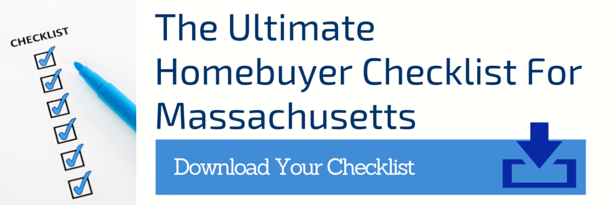
[ad_1]
In extremely aggressive actual property markets, house patrons typically ponder waiving important contingencies to make their provides extra engaging to sellers.
 Residence patrons could select to waive the appraisal contingency, however it’s a threat that needs to be fastidiously thought of.
Residence patrons could select to waive the appraisal contingency, however it’s a threat that needs to be fastidiously thought of.
Massachusetts actual property brokers usually use certainly one of two main contracts to make a suggestion to buy residential actual property: (1) The Massachusetts Affiliation of Realtors Contract to Buy Actual Property; and (2) The Higher Boston Actual Property Board Supply to Buy Actual Property.
Neither contract has an appraisal contingency. A house purchaser’s actual property agent ought to add the appraisal contingency if one is desired. Likewise, a house purchaser would possibly proactively waive the appraisal within the contract to buy actual property.
An appraisal contingency waiver doesn’t imply a house purchaser waives the house appraisal. It means the house purchaser is prepared to cowl any distinction between the agreed-upon value and a low appraisal worth with money at closing. It assures the vendor that the client is not going to use a low appraisal to terminate the settlement to buy the house.
What’s an Appraisal Hole?
An appraisal hole is the disparity between a house’s appraised worth and the client’s buy value. For instance, if a house purchaser makes a suggestion of $500,000 on a house, however the appraiser determines its worth to be $470,000, a house purchaser faces an appraisal hole of $30,000.
For instance, a vendor would possibly listing a home for $575,000, and a homebuyer could provide $615,000, or $40,000 greater than the itemizing value. Whereas a vendor definitely will just like the provide, if the appraisal is available in lower than $615,000, the house purchaser may terminate the settlement and stroll away. A house purchaser would possibly embrace an appraisal contingency clause in a vendor’s market, basically waiving the appraisal contingency.
An appraisal hole clause is when a house purchaser commits to paying greater than a property’s appraised worth if the appraised worth is decrease than the provide or agreed-on value of the house. Basically, a homebuyer agrees to cowl the distinction in further down cost between what they had been prepared to pay for the home and the quantity an appraiser units the house’s appraised worth.
Typically, an appraisal hole clause assures the vendor {that a} house purchaser will proceed with the transaction if the appraisal is decrease than the agreed-upon gross sales value.
A substitute for an outright waiver of the appraisal contingency is including an appraisal hole clause to the contract that limits the amount of cash a homebuyer will cowl for a low appraisal. For instance, a house purchaser would possibly provide $600,000 and comply with make up any appraisal hole between $580,000 and the provide value, thus limiting the extra money wanted to shut to $20,000.
If a house purchaser waives the appraisal contingency and lacks the funds to cowl a low appraisal, they threat dropping their deposits.
Associated: Residence Consumers Should Perceive the Mortgage Dedication Deadline
Why Do Appraisal Gaps Occur?
Quite a few components can lead to appraisal gaps, together with, however not restricted to, the next components.
(1). Quickly Rising Residence Costs: In a scorching housing market, quickly escalating house costs can outpace appraisers’ skill to maintain up with present market values. Consequently, value determinations could are available decrease than the acquisition costs supplied.
(2). Low Stock: A restricted provide of houses can intensify purchaser competitors, resulting in a number of provides and inflated costs.
(3). Bidding Wars: Fierce bidding wars between house patrons attributable to low stock or different components can result in excessive provides – typically effectively above the itemizing value – surpassing practical appraised values.
What Occurs if There’s an Appraisal Hole?
Residence patrons with appraisal contingencies of their contracts to buy a house have choices if the appraiser’s appraisal is decrease than the provide or agreed-upon value.
With an appraisal hole, there are methods house patrons can proceed.
(1). Negotiate with the Vendor: You may try to renegotiate the acquisition value with the vendor primarily based on the appraised worth; nonetheless, this method could solely generally achieve success, particularly in a aggressive market.
(2). Cowl the Distinction: When you’re financially in a position, you possibly can pay the distinction between the appraised worth and the acquisition value with more money.
(3). Stroll Away: If the appraisal hole is critical and there is an appraisal contingency in place, you’ve gotten the suitable to stroll away from the deal. After all, terminating the transaction just isn’t ultimate, however a house purchaser could not have another selection if the vendor is not prepared to compromise relating to the agreed-upon value.
How Low Value determinations Have an effect on Mortgages
A purchaser’s skill to safe a mortgage is contingent upon a passable appraisal, which signifies that if a house would not appraise for the contract value, it may influence the borrower’s qualification.
Lenders usually assess the utmost mortgage quantity primarily based on the decrease worth of the acquisition value or the house’s appraised worth. As an example, if a purchaser has a ten % down cost on a $600,000 property – financing 90 % of the acquisition value – the utmost mortgage quantity could be $540,000. If the house appraises at $585,000, the lender would solely finance 526,500, or 90 % of the appraised worth.
Beneath the situation above, the client would have an appraisal hole of $13,500, requiring more money to shut, totaling $73,500 as an alternative of the beforehand anticipated $60,000.
Whereas patrons with adequate money reserves can proceed with the transaction, these missing the extra funds could should again out, risking the lack of their earnest cash deposit. Sadly, some house patrons could unknowingly waive the appraisal contingency with out totally comprehending the potential penalties, notably the chance of forfeiting their deposit.
Fastidiously Think about Whether or not to Waive the Appraisal
When considering the potential of waiving the appraisal contingency or another actual property contingency through the home-buying course of, it’s crucial for potential house patrons to hunt steerage from a loyal, trusted, and educated actual property purchaser agent. A devoted purchaser agent will present precious insights and recommendation to assist navigate the complexities of buying a house in Massachusetts and shield the client’s greatest pursuits all through the home-buying course of.
[ad_2]
